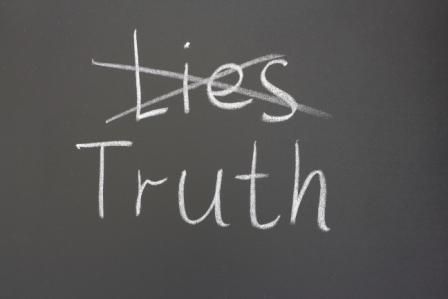Most of us would say that we hate it when people lie to us. However, if we’re honest, we’d admit that we’re all liars at one time or another.
In my volunteer work at my local animal shelter, it can be incredibly frustrating to be on the receiving end of some of the lies that people tell to avoid taking responsibility for their pets. Recently a woman called the facility about a “stray” cat that was hanging around her house. Despite the fact that the cat seemed REALLY comfortable at her home, no one could just accuse her of lying about the cat not being hers. Interestingly enough, when the cat was brought back to the facility and scanned for a microchip, MIRACULOUSLY her microchip came back with the name and address of the person who said the cat wasn’t hers.
So why would someone tell a seemingly ridiculous lie? The fact is, we lie to achieve a goal that we don’t think we’d otherwise be able to achieve by being honest.
People lie to protect themselves.
People lie to gain or maintain control or power.
People lie to avoid conflict.
People lie to save face or to make themselves look or feel better.
People lie to hurt others.
People lie to avoid hurting others.
People lie to manipulate others and situations.
And on and on.
Although we’re not always going to be able to get others to be honest, there are three key things we can do that will increase the odds others will set aside the lies and tell us the truth.
- Make it safe. Threatening an employee by saying, “You know, if I find out you’re not telling the truth, that’s grounds for termination,” is not exactly encouraging them to open up and tell the truth. Instead, you might say, “If you can share with me what happened, we can work together to find out why and come up with a plan to avoid the problem next time.”
- Use silence. Don’t pepper people with questions like you’re an interrogator, “So it’s not your cat, eh? Sure looks like he knows you. And you’re saying he just wandered into your house and made himself at home? Really?” Instead, ask one question and wait for a response. The full response. For example, “Let’s go back to the beginning. Tell me when you first noticed the cat at your house.” Then, when the person completes their story, just wait and maintain eye contact as if you’re expecting more. The silence will become uncomfortable and when it does, someone is going to try to break the awkwardness by talking. Let it be the other person. You’ll be surprised at what you hear.
- Be appreciative. The worst thing you can do, especially if the person confesses a lie to you, is to get angry and have a fit, or say something lie, “Ah ha! I KNEW you were lying to me. Do you think I’m stupid?” The best thing you can do is calmly and sincerely say, “Thank you. I’m so glad you trust me enough to tell me what really happened. I hope next time, you’ll feel comfortable enough to be honest right away. Not only will it be a lot less awkward for both of us, but we can move forward sooner.”
Amy Castro is a communication expert, speaker, and author of the book Practical Communication: 25 Tips, Tools, and Techniques for Getting Along and Getting Things Done.







